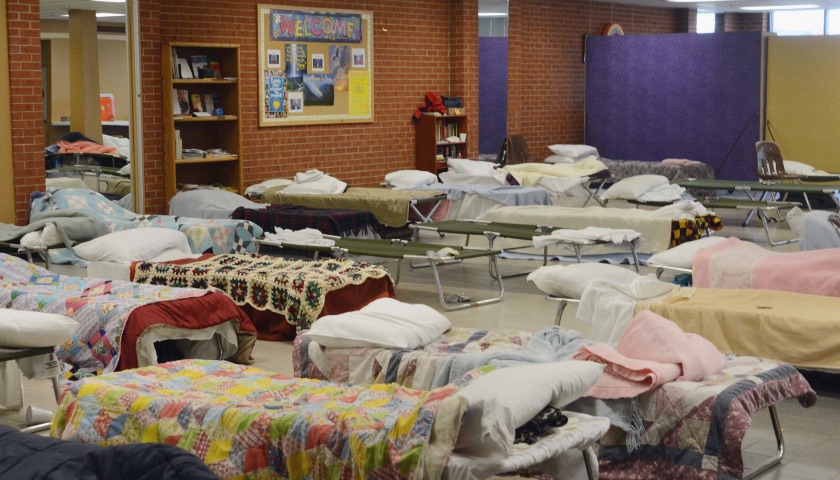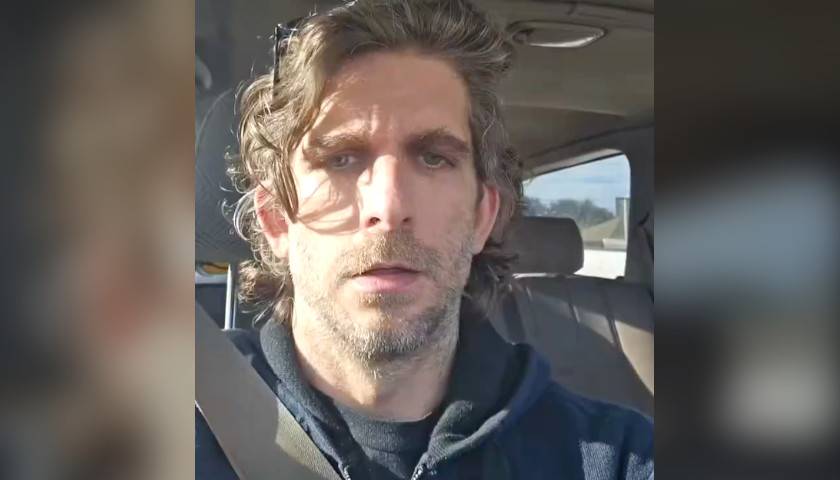In the effort to combat homelessness and provide adequate indoor sheltering options amidst the COVID-19 pandemic, the city of Richmond is contracting with faith-based groups in the area and the Greater Richmond Continuum of Care (GRCoC), a network of service providers that aid the homeless population.
In past years Richmond has used the Anne Gile Center, located in Upper Shockoe Valley just north of downtown, as the city’s primary Cold Weather Overflow Shelter (CWOS), but it was closed down this year in part because of COVID concerns and partly in favor of the new plan.
Since March of this year Homeward, a homeless service planning and coordinating organization for the Richmond region, has been operating the Greater Richmond Region’s Pandemic Response Non-Congregate Shelter Program, which is part of the GRCoC.
“Almost all of our shelter providers cater to specific populations of people experiencing homelessness,” Sharon Ebert, Richmond’s deputy chief administrative officer for economic and community development, said in a statement. “Most individuals/households need special services and move to specific facilities that provide those services (such as behavioral health, victims of domestic violence, or substance abuse treatment).”
Ebert also said that over 700 individuals experiencing homelessness have been helped using that system since mid-march.
Some of the service providers that are part of the GRCoC include Homeward, HomeAgain, The Salvation Army, Commonwealth Catholic Charities and CARITAS, among others.
The Virginia Star sent interview requests to Homeward and HomeAgain for this story, but did not hear back before press time.
The system and the work of the contracted providers is possible because of roughly $7.5 million in federal funding from the U.S. Department of Housing and Urban Development awarded to the city of Richmond.
Currently, there are 12 emergency shelters in Richmond providing 385 emergency beds/rooms. Furthermore, CARITAS is expected to open up a new shelter and women’s treatment center with space for an additional 28 beds, and the GRCoC is contracted with an organization that adds 50 more beds, along with other services, through three city hoteliers, according to Ebert.
There are some that were not in favor of getting rid of the CWOS and believe the new plan is flawed, however. Kimberly Gray, Richmond City Council member and mayoral candidate, is one of those people.
When asked if the city of Richmond was taking adequate steps to help the homeless population Gray said: “No, no, absolutely not. There are people on the streets now that are not being provided for,” Gray said in an interview with The Star. “There are too many barriers to what they are saying is the alternative for shelter right now, for that cold weather overflow shelter.”
“So, I don’t think they have adequately provided for these services,” Gray added. “We contract with the Continuum of Care to provide those services, so I think that the mayor has failed this population of people.”
A key part of the homeless services is the crisis hotline, which Gray pointed out it can only be used Monday-Friday, 8 a.m. to 6 p.m. and claimed that there is difficulty actually making arrangements to get to a shelter.
Ebert said that they are working to expand the hotline hours during the week and on the weekend by adding more operating staff.
As far as outreach and notifying the homeless population, the city is publicizing information on where to find shelters in places where the homeless frequent like public libraries, bus stops, emergency rooms and food pantries, Ebert said.
According to Homeward’s snapshot count, on January 23, 2020, there were 549 people in the Richmond area experiencing homelessness and 130 were unsheltered.
Comparatively, on January 23, 2019, Homeward counted 497 people in the area were experiencing homelessness with 152 unsheltered individuals.
At the time of the count Homeward surveyed the adults, of which 335 out of 479 or 69.9 percent completed.
The survey revealed various trends including that 71.2 percent were males and 28.5 percent were females, the average age was 48.7 years old, 73.5 percent has served some time in jail and/or prison, 67.4 percent said they identified themselves as black and 26.9 identified at white, and, in their lifetime, 34.6 percent reported a problem with alcohol while 41.3 percent reported having a problem with drugs.
– – –
Jacob Taylor is a reporter at The Virginia Star and the Star News Digital Network. Follow Jacob on Twitter. Email tips to [email protected]
Photo “Homeless Shelter” by KOMUNews CC BY 2.0.




